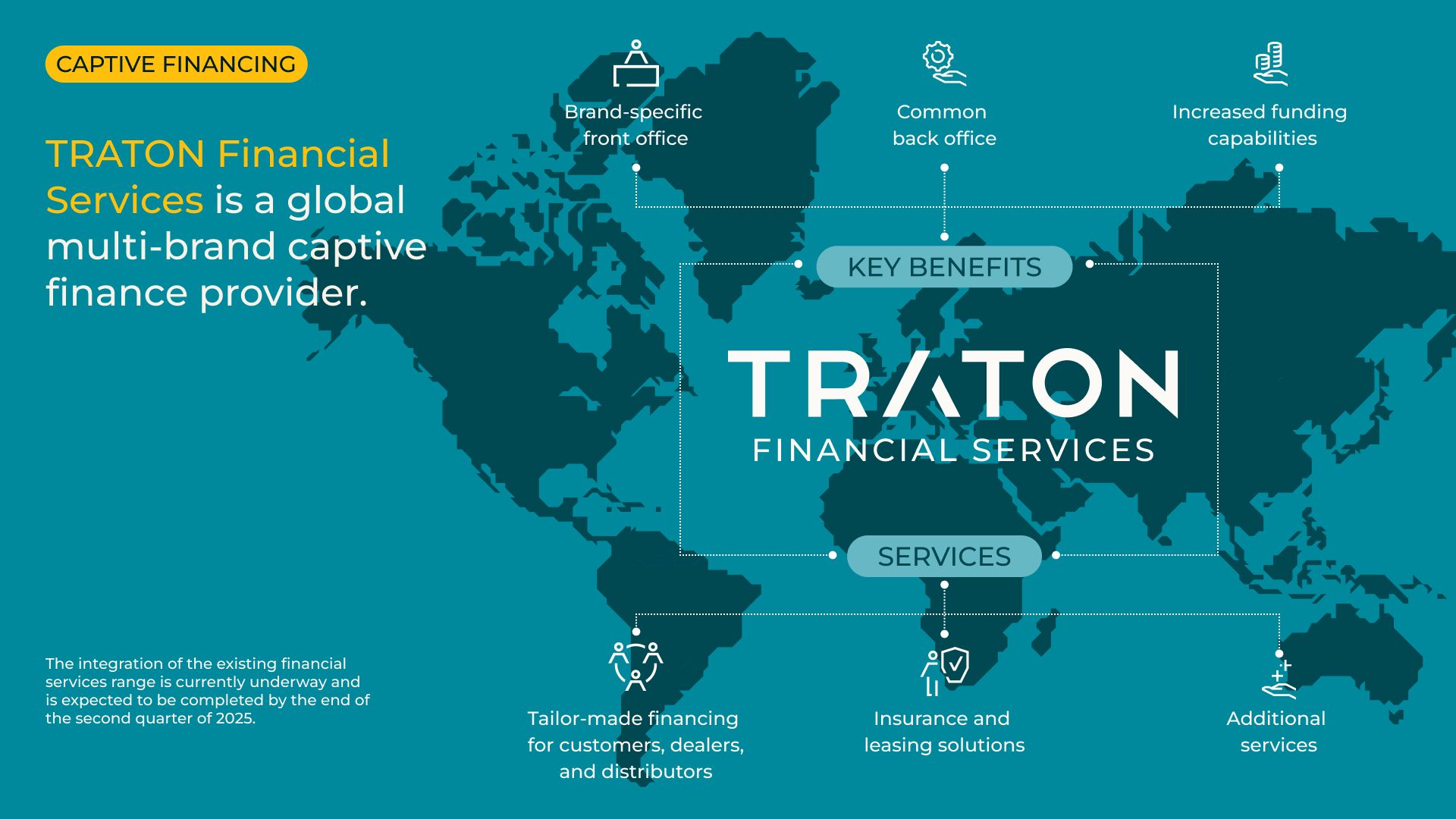The shift from combustion to electric engines is far from simple. It is more complicated than merely just swapping one technology for another; we are in the midst of an epochal transformation and a radical rewriting of the transportation sector’s rules. At the same time, it opens up innovative business models and new opportunities. “We’re experiencing a fundamental shift in the automotive industry towards zero-emission vehicles, a shift that also includes commercial vehicles. This change will alter not just the drive system, but also the business model itself away from a hardware-centric model to a service model centered on customers,” says Anna Herlt, a Senior Partner at McKinsey & Company, who specializes in the automotive and truck industry.
Moving from ownership towards temporary utilization
As with most sectors in the modern economy, the focus of the transport industry is moving away from mere ownership toward efficient utilization and solutions. This echoes the global automotive industry’s wider shift towards solutions, a trend that began years ago with car leasing and sharing.
The push for new technologies and solution offerings is also prompting major truck manufacturers like the TRATON GROUP to adapt. Merely producing low-emission vehicles is no longer sufficient; customers are now demanding novel solution packages and utilization options from manufacturers, a trend that is expected to continue in the future.
As of today, the higher purchasing cost of electric vehicles poses a significant challenge for transportation companies, forcing them to find new ways to adapt. Other players have struggled to come up with solutions due to a need to focus on more pressing market and financing demands. Traditional banks also grapple with pricing models for more expensive trucks, due to factors such as higher residual values and uncertainty around second life of batteries. These challenges create opportunities for new players to enter the field.

One of these is both a start-up and an old hand. TRATON Financial Services began operations on April 1, 2023, as a Group-wide and integrated business unit for financial services. Under the leadership of Johan Haeggman, previously CFO of Scania, it has crafted comprehensive customer financing services tailored to the evolving needs of new technologies and business models. Haeggman’s prior tenure at Scania equipped him with significant experience in captive financing, enriching TRATON Financial Services’ expertise.
Captive financing supports the mobility transition
“With the creation of TRATON Financial Services, the TRATON GROUP accelerates the transformation towards becoming the global leader in sustainable and fully connected transportation and being a true partner to customers of all our brands. This move also marks another step in the transformation of the TRATON holding, where we leverage key elements from all brands for the good of the Group,” says Christian Levin, CEO of the TRATON GROUP.
Captive financing was already in place across the TRATON GROUP’s brands. Scania Financial Solutions, MAN Financial Solutions and Volkswagen Financial Services, had already been active within the financing market for some time. Under the unified management of TRATON Financial Services, however, this business model has become significantly more robust, enhancing the quality of service for customers. Furthermore, with Navistar Financial, it’s now possible to offer financing from a single source in the North American market, and Volkswagen Truck & Bus will soon follow suit.
Johan Haeggman’s team is now establishing the TRATON GROUP’s captive financing offer within the market, where it is taking a customer-centric approach. “Captive financing is an additional means to serve our customers, and it’s very much about nurturing customer relationships within our business-to-business environment,” notes TRATON Financial Services CEO Haeggman. Unlike traditional banks or financing service providers, TRATON is immersed within the industry and has a first-hand understanding of the business models and challenges faced by transport companies, allowing it to tailor its solutions specifically to this sector.
“With the creation of TRATON Financial Services, the TRATON GROUP accelerates the transformation towards becoming the global leader in sustainable and fully connected transportation and being a true partner to customers of all our brands. This move also marks another step in the transformation of the TRATON holding.”
Christian Levin CEO of the TRATON GROUP
Haeggman provides an example: “We can provide various types of products to our customers. It’s not strictly limited to leasing or similar arrangements. For instance, in our industry, seasonal fluctuations are common. We can structure a payment scheme over the course of a year, with, let’s say, minimal payments during specific months and higher payments during others, adapting to our customers’ business cycles.”
Logistics companies, whose services form the backbone of modern economies, face significant pressure while adapting to the transition currently underway in the transportation sector. The fact that such businesses traditionally operate on narrow profit margins presents yet a further challenge. In this context, substantial investments demand careful consideration, particularly as much of the ongoing requirement for investment stems from the higher cost of purchasing BEV trucks. According to Haeggman, the costs are notably higher due to rising battery performance requirements and low volumes in the beginning, factors that are behind an increase in the purchasing price of electric trucks by a factor of 2.5 to three.
“We can provide various types of products to our customers. It’s not strictly limited to leasing or similar arrangements. In our industry, seasonal fluctuations are common. We can structure a payment scheme over the course of a year, adapting to our customers’ business cycles.”
Johan Haeggman CEO TRATON Financial Services
“This means you have many companies – particularly small and midsize ones, not just the larger enterprises – that start to feel a considerable strain on their balance sheets,” explains Haeggman. “The transportation industry already operates on thin margins, so the heavy burden of vehicle ownership adds another layer of financial risk for these smaller players. When we talk about new business models, it essentially questions how one can acquire more of a Truck-as-a-Service when in need of a vehicle, and how one can transfer the burden of their balance sheet to captive finance in this context.”
On the way to pay-per-use
Even within today’s logistics landscape, a large portion of trucks remain static – not stuck in traffic jams but sat idle in parking lots or yards because they’re not required at that specific time. This scenario undermines the economic efficiency of transportation, turning it into a cost rather than an investment. On this, Haeggman predicts: “Situations will also arise where a customer only needs to own a vehicle for eight hours a day, rather than 24/7. At TRATON Financial Services, we’ll accommodate for this by charging solely for those eight hours. Naturally, our risk lies in the other 16 hours of potential non-use, however, we then have the option to lease them out for the remainder of the time. Perhaps not for the entire 24 hours a day or seven days a week, but certainly for a specific duration. This epitomizes Truck-as-a-Service in its purest form.”

.jpg)


